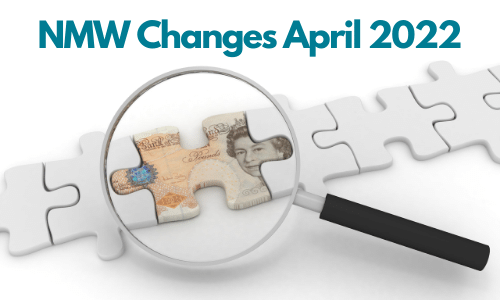National Minimum Wage is Increasing in April 2022
This increase beginning in April 2022 means that the national minimum wage (NMW) legislation will now apply to a larger number of employees. Employers must consider that it will not be limited to hourly paid employees, as higher rates will increasingly bring salaried employees close to the minimum, particularly once the increase takes effect; for example, the minimum annual salary for a worker aged over 23 working a 40-hour week will be just under £20,000 per year.
Because of the complexities of the NMW calculation, employers must carefully review positions where an employee's higher rate of pay exceeds the new minimum. This is especially important where employers offer salary sacrifice plans, such as for pension contributions. Employees must not be permitted to reduce their pay below the NMW, and employers must ensure that their payroll systems have safeguards in place to prevent this from happening.
Employers should also ensure that their systems alert them when an employee approaches the age of 23, so that they can determine whether the employee's pay needs to be increased to meet the national minimum wage requirements.
What are the changes?
- The national minimum wage for those aged 23 and up will rise from £8.91 to £9.50 per hour. The minimum wage for 21 and 22-year-olds is also set to rise, with the hourly rate rising from £8.36 to £9.18 — a 9.8 percent increase.
- Minimum wage will rise from £6.56 to £6.83 for those aged 18 to 20, and from £4.62 to £4.81 for those aged 16 to 17
- The hourly rate for apprentices is set to rise from £4.30 to £4.81 — an 11.9 percent increase.
- The 6.6 percent increase in the minimum wage for those over the age of 23 – known as the National Living Wage – is more than double the current 3.1 percent increase in the cost of living.
The Bottom Line
The National Minimum Wage (Amendment) Regulations 2021 require employers to keep sufficient records to demonstrate that national minimum wages were paid for the previous six years, an increase from the original three years. Failure to keep such records is a criminal offence.
Finally, employers must ensure that they continue to follow the Regulations or risk being 'named and shamed' by the Government, which will release the names of 191 employers who failed to pay minimum wages in August 2021.
Get in touch! We Can Help.
Datum RPO can help you to manage your agency providers, ensuring that the workers they provide are legally compliant, as well as deliver significant cost savings.
Download our eGuide: Your Guide to Taking Control of Agency Labour Spend: 5 Reasons for Efficient Management.









.png?width=180&height=180&name=Ecovadis%202024%20(200%20x%20200%20px).png)
